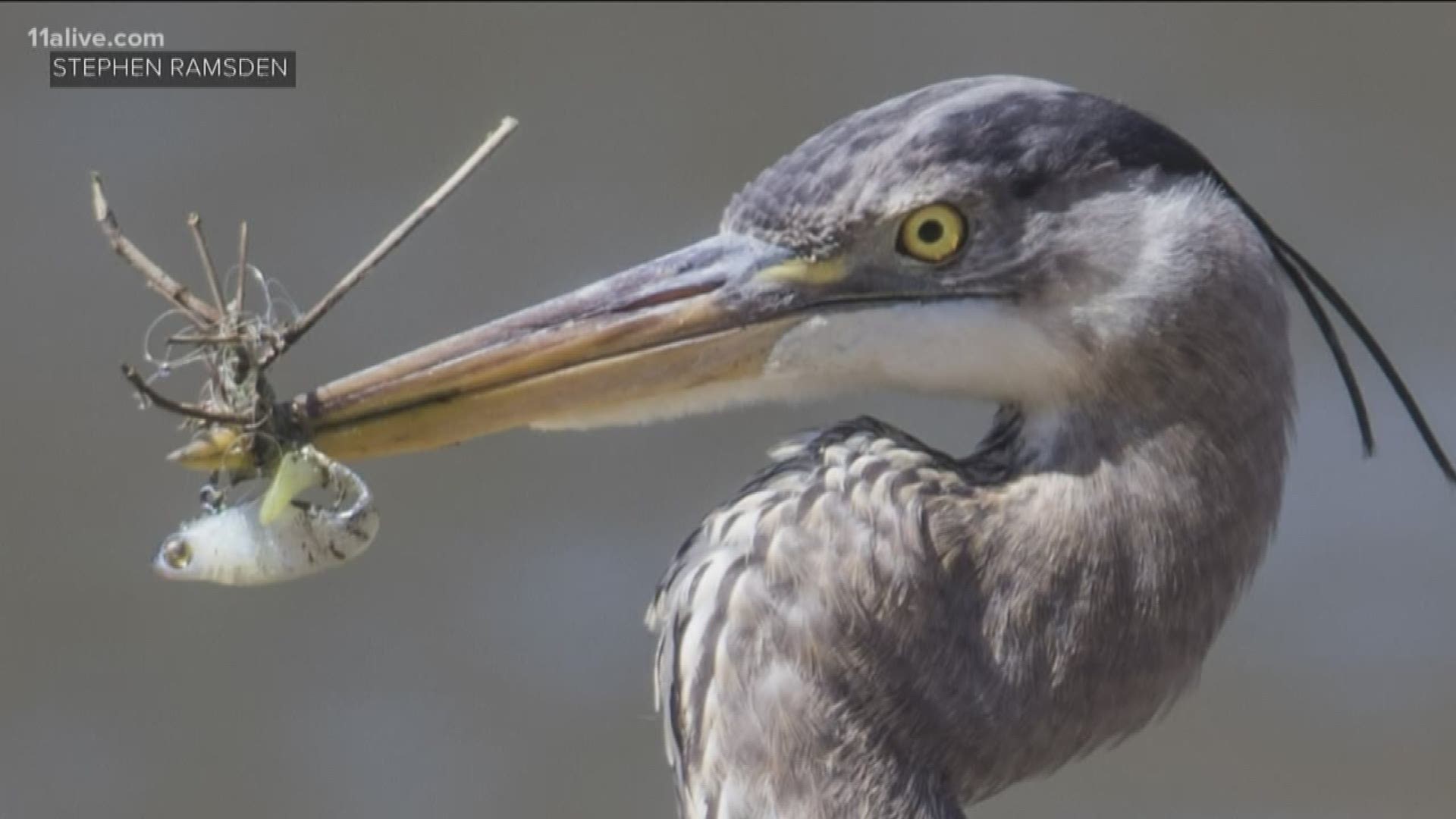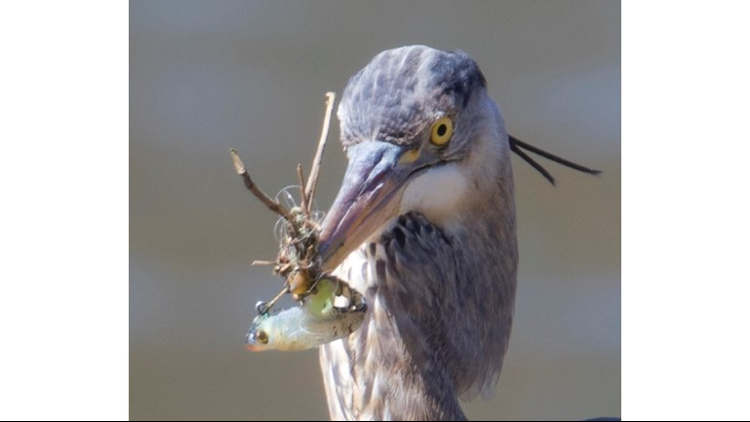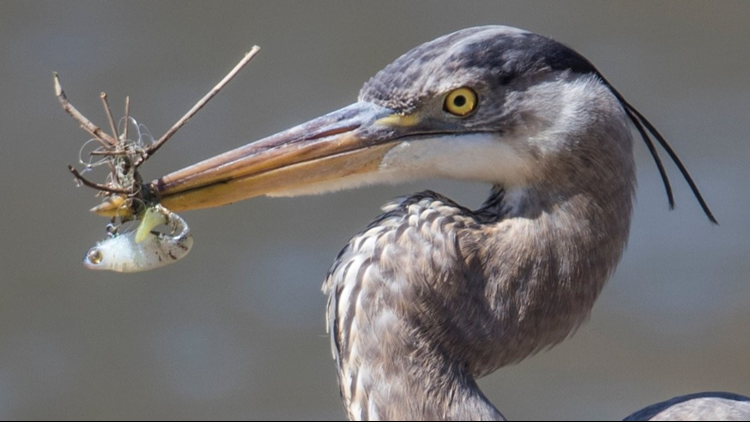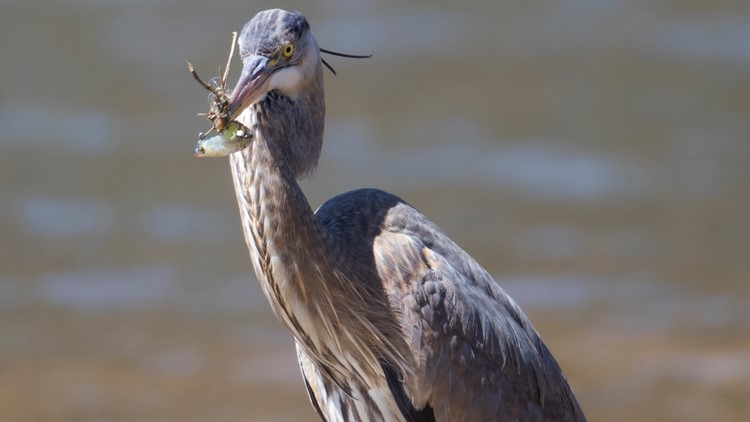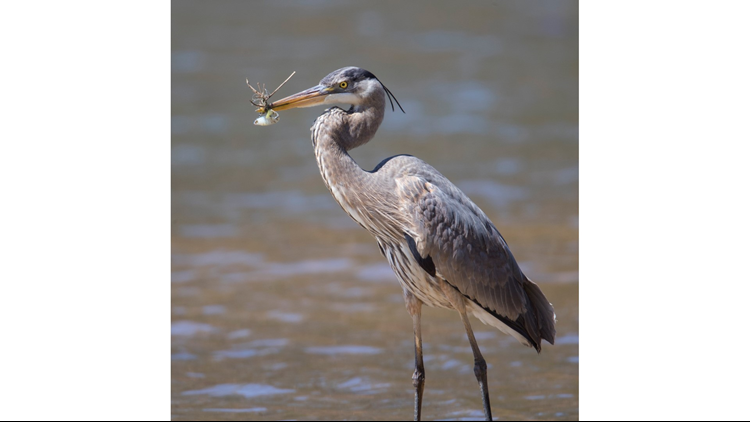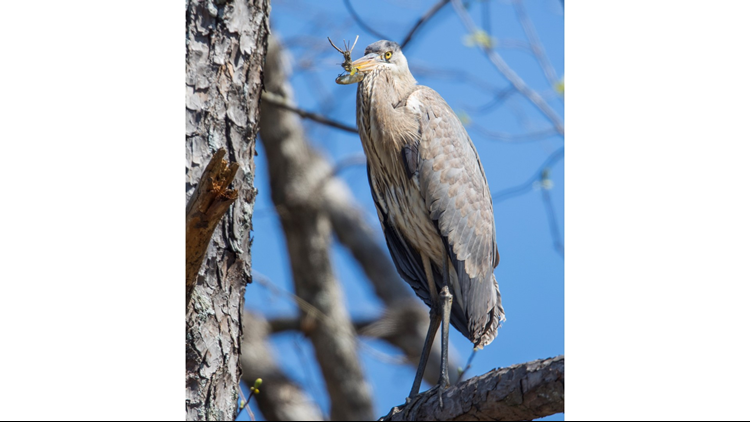BROOKHAVEN, Ga. — A great blue heron that rescuers worked hard to rehabilitate has died.
Sadly, volunteers were not able to save the bird, who they lovingly called "Murph."
Scott Lange of Aware Wildlife Center in Lithonia told 11Alive's Jon Shierk on Thursday that the heron was very weak after being without food and water for several days. Volunteers were just about to administer another round of liquid nourishment when Murph "took a bad turn."
"As emaciated as he was, his organs were under significant stress. We treated 1,300 patients from the wild last year, and we were able to save more than half of them. Unfortunately that means hundreds died. It's always hard," Lange said. "We should remember that death in the wild is often not peaceful. That's part of nature. At least here, because of caring people, this heron died in a safe place, being comforted and treated."
On Thursday, March 28, Stephen Ramsden said he was birding with a friend at Murphey Candler Park in Brookhaven when they spotted a great blue heron with what they thought was a fish in its mouth.
Ramsden said he got out his camera with the telephoto lens. That's when they made a disturbing discovery - that “fish” turned out to be an artificial fishing lure, and it was embedded in the bird’s lower beak. On top of that, Ramsden said the line was wrapped all around the end of the beak, preventing it from eating or drinking.
"[I was in] despair at human’s garbage, because humans have thrown so much garbage around everywhere," Ramsden said. "These birds eat anything that reflects sunlight, as food."
While the situation appeared to be desperate for the bird, Ramsden said they were determined to help anyway they could.
"I knew if we could get the bird, that we could save the bird," he said.
Photos: Blue heron rescued after fishing wire gets stuck around its beak
But the process would be a tricky one. So, they waited.
"The blue heron is very difficult to rescue because it has a very powerful beak, which can pierce your chest or take out your eye," Ramsden said. "So, you have to wait until the bird is emaciated enough where you can safely catch it, and control the beak. But you can’t wait too long, because shortly after that the bird dies."
After a full seven days, Ramsden said they knew it was time to make their move.
"(It) would have been the last day for the bird, probably. It didn’t have long to live. So, it was waiting there, really, to die," he said.
Ramsden said they were able to get the bird under a blanket, tuck its wings and bring it to the AWARE Wildlife Center in Lithonia.

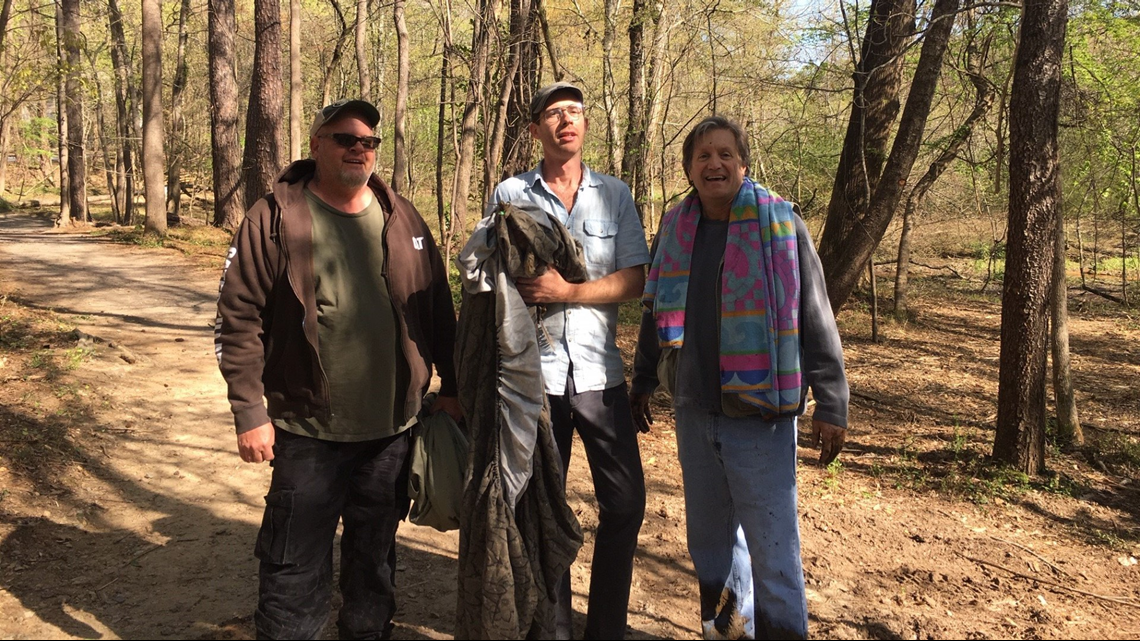
"This bird’s very inspiring to me because I told myself I was not going to sit back and do nothing, I was going to make sure that this bird got a chance," Ramsden said. "And that’s what we did."
He's dubbed the bird "Murph," short for Murphey.
Scott Lange with AWARE said they're going to do everything they can for it.
"But far and away, the best lesson to take from this is to never leave fishing line discarded," Lange warned. "You know, when it breaks, if you’re fishing, try to gather it up and help save wild animals that way."

